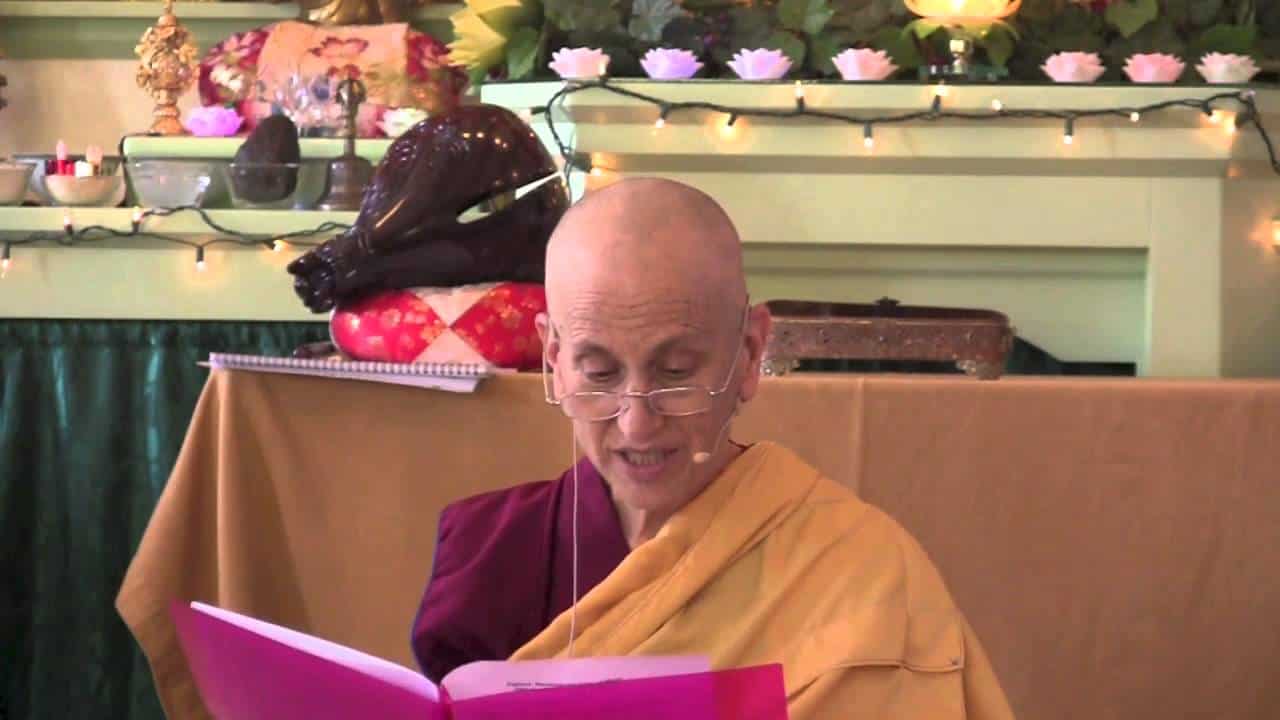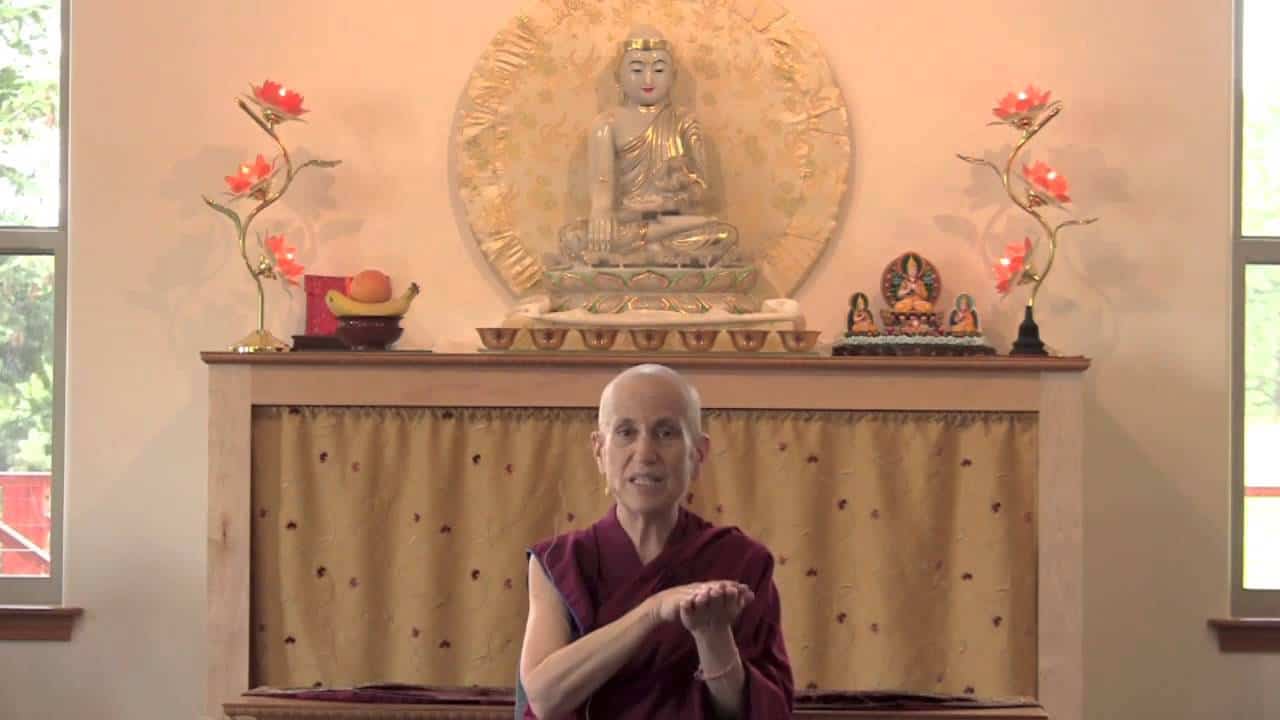Quiz: Aryadeva’s 400 Stanzas, Chapter 12

Venerable Thubten Chodron has put together the questions below for a review of Chapter 12: Refuting wrong views.
-
What are the 3 qualities of a person who is suitable to listen to teachings on emptiness? What are the 5 qualities of such a listener?
-
What are the 10 qualities of a qualified Mahayana spiritual mentor?
-
All non-Buddhists and followers of lower Buddhist tenets agree that one attains nirvana by giving up attachment to everything associated with afflictions. Why, then, do they dislike it when the Buddha says the person and the aggregates are empty of inherent existence?
-
How does having an understanding of emptiness help us to have strong confidence and certitude in the Buddha’s teachings?
-
What are evident (obvious) phenomena, slightly obscured (hidden) phenomena, and very obscured phenomena? Make examples of each. Which one is emptiness? What types of cognizers is each one not invalidated by?
-
What kind of reliable cognizer can know each of these?
-
To correctly infer that a scriptural passage is accurate and free from fault, we must test it by means of a three-fold analysis. What are the 3 points (the last point has 2 parts)?
-
What does verse 283 mean? Who has no fear of emptiness? Who has no fear?
-
Why are proponents of the lower tenet systems afraid of the emptiness of inherent existence? Why do they reject it?
-
What are disadvantages of falling to each of the two extremes? Why is lapsing from ethics preferable to lapsing from the view? Why is falling to the extreme of absolutism not as bad as falling to the extreme of annihilation?
-
What are the disadvantages of teaching people new to the Dharma about emptiness? Does that mean we should not mention emptiness at all when talking to them about the Dharma? What background should they have first before we explain emptiness to them?
-
Why is realizing emptiness the only door to peace?
-
What is the difference between a conceptual and nonconceptual realization of emptiness?
-
Is suffering virtuous? Is birth as a human being virtuous? What is the difference between being virtuous and being the result of virtue?
-
Explain verse 298 “In brief Tathagatas explain virtue as non-violence and emptiness as nirvana—here there are only these two.” How does that relate to the explanation of Buddhist view and conduct?
-
Why is it important to be open-minded? Why is it important to think deeply about the teachings? How can you cultivate these in yourself?
Venerable Thubten Chodron
Venerable Chodron emphasizes the practical application of Buddha’s teachings in our daily lives and is especially skilled at explaining them in ways easily understood and practiced by Westerners. She is well known for her warm, humorous, and lucid teachings. She was ordained as a Buddhist nun in 1977 by Kyabje Ling Rinpoche in Dharamsala, India, and in 1986 she received bhikshuni (full) ordination in Taiwan. Read her full bio.


